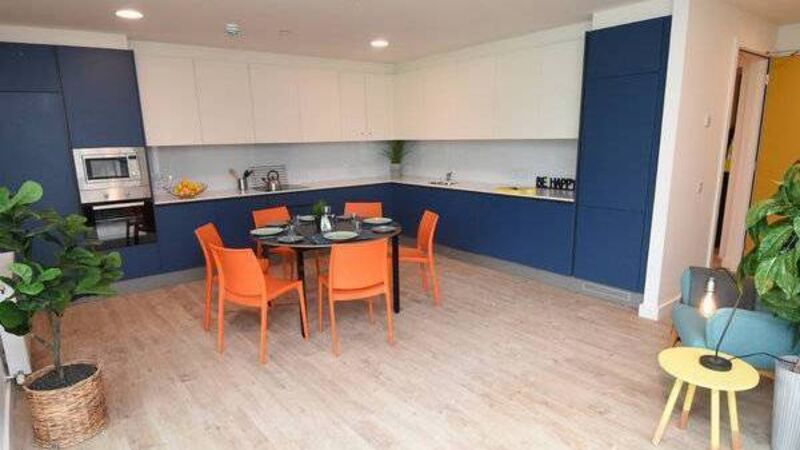Plan to use Cork student accommodation for tourists abandoned

The interior of the apartments at Lee Point on South Main St. File Picture.
The hotel industry has welcomed the scrapping of plans to temporarily use nearly 40% of the rooms in a large student complex in Cork City for tourist and visitor use.
Irish Student Fund Cork (IV), which owns the Lee Point complex on South Main St, has withdrawn its application just four months after being granted planning by Cork City Council for the temporary use of 168 of the complex's 420-rooms for tourist and visitor accommodation from January 1 to May 31 of this year.













